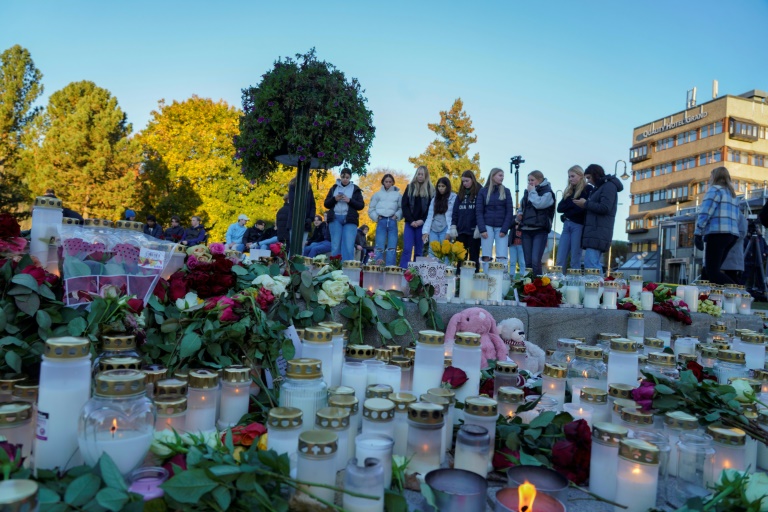A bow-and-arrow attack in Norway that left five people dead this week appears to have been motivated by mental illness, authorities indicated Friday, as the perpetrator was ordered to be kept in a medical facility.
Espen Andersen Brathen, a 37-year-old Danish citizen who converted to Islam and is believed to have been radicalised, has confessed to the killings in police questioning.
He was on Friday in custody in a medical facility pending a psychiatric evaluation.
“The strongest hypothesis after the first days of the investigation is that illness is in the background,” police inspector Per Thomas Omholt told reporters on Friday, two days after the attack.
Police were however keeping other possibilities open, and have investigated a range of motives including “anger, revenge, impulse, jihad, illness and provocation,” Omholt said.
The psychiatric evaluation, which could take several months, is necessary to determine whether Brathen can be held legally responsible for his actions.
“This indicates that things are not exactly as they should be,” his lawyer Fredrik Neumann said, referring to his client’s mental health.
“A complete judicial assessment will clarify that,” he told Norwegian daily VG.
Omholt said Friday that Brathen had admitted to the acts but did not admit guilt.
While authorities said the attack bore the hallmarks of an act of terror, they seemed to be leaning toward the theory that it was the act of a mentally unstable person.
“There is no doubt that (it) appears as if it could be an act of terror, but it’s important that the investigation continues and that we establish the motive of the suspect,” the head of Norway’s intelligence service PST, Hans Sverre Sjovold, told a news conference on Thursday.
“This is a person who has been in and out of the health system for some time,” Sjovold said.
Brathen was known to police previously over fears he had radicalised.
Four women and one man were killed and three people injured, and police said a bow and arrows and two other undisclosed weapons were used before he was arrested.
– Always ‘alone’ –
The suspect was known to PST, which is in charge of Norway’s anti-terrorism efforts, but few details have emerged about why.
“There were fears linked to radicalisation previously,” police official Ole Bredrup Saeverud told reporters.
Those reports were before this year, and police said they had followed up at the time.
Norwegian media reported that Brathen was subject to two prior court rulings, including a restraining order against him regarding his parents after threatening to kill his father, and a conviction for burglary and purchasing narcotics in 2012.
Local media also unearthed a video Brathen allegedly posted on social media in 2017, in which he issued a “warning” and declared his Muslim faith.
Speaking anonymously, one of Brathen’s neighbours described him as a big person with a crew cut and a serious demeanour, who was always seen “alone”.
“No smile, nothing in the face. He was just staring,” the neighbour told AFP.
Brathen is believed to have acted alone when he killed four women and a man, aged between 50 and 70, in several locations in Kongsberg where he lived.
Norway’s Prime Minister Jonas GahrStore, who took office on Thursday following recent elections, was on Friday expected to visit the town of 25,000 people, which was still reeling.
Flowers and candles were placed in front of the various crime scenes.
– ‘I’m totally broken’ –
Svein Westad, a 75-year-old pensioner wandered aimlessly on a Hyttegata, a street where two of his neighbours and close friends were killed in their homes.
“I’m totally broken into pieces, I cannot say anything more than that. I will never get over this,” he told AFP.
“They should have caught him immediately,” he said, referring to criticism against the police for arresting Brathen more than 30 minutes after the first reports came in.
Norway rarely experiences such violence, but 10 years ago Anders Behring Breivik killed 77 people in the country’s worst massacre since World War II.










